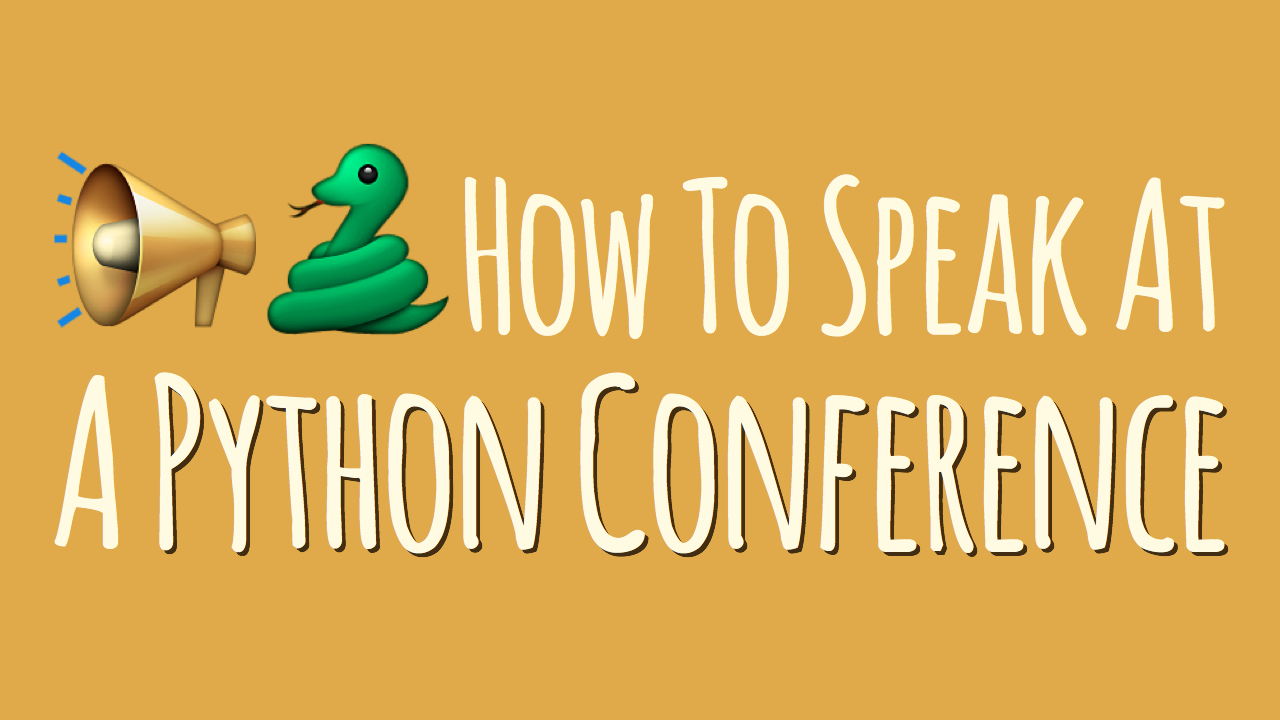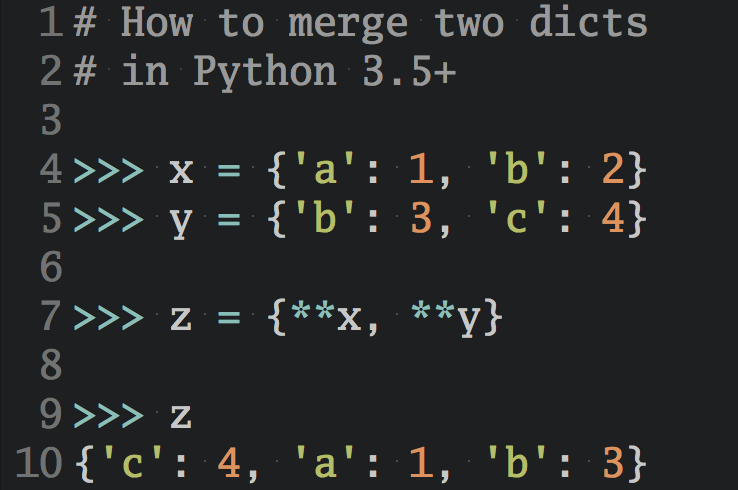How to Speak at a Python Conference
My tutorial on how you can get a first-time speaking gig at a tech conference like PyCon as a software developer.

I gave a talk at PyCon Germany this year and I was just chatting with my friend Sergei who wants to get into presenting at tech conferences and is looking for a way to get started. Here’s Segei’s question:
My goal for now it to get ready for the spring season of conferences, and pick one where I could present something.
I want to try presenting stuff on conferences, as it is a great public speaking experience for me and… free attendance of a good conference :)
Where do you start if you want to present something?
If you’re thinking about speaking at a tech conference that’s a fantastic idea! It’s a lot of fun (it’s a lot of work, too)—but it’s totally worth it.
It’s great for getting in touch with people, making new connections, finding a new or better job, and to improve your public speaking skills. Plus, you get tagged as a speaker on your conference badge—a great conversation starter 😜
Alright, I’m sold—How do I become a first-time conference speaker?
For most tech conferences you can become a speaker by applying with a talk proposal a few months before the conference takes place.
Basically, all the legwork is on you. You’re picking the topic and pitching it to the conference organizers and they decide which talks they accept. If you’ve built a bit of a reputation for yourself then conference organizers might contact you and ask you to speak at their conference. But for first time speakers that’s unlikely.
The key thing here is to apply early enough and before the “call for proposals” deadline. The deadline usually ends well in advance before the conference takes place. It absolutely helps and increases your chances to get in if you plan ahead of time.
Where can I find upcoming conferences to speak at?
For conferences related to Python there’s the Python Events calendar at:
Use the events calendar to find a conference that looks interesting. Then check out the conference website to see what the application process is like and when the call for proposals (submission deadline) ends.
At this point you should know which event you want to speak at, who to send your talk proposal to, and when the submission deadline is. The next step is to put together and send in your talk proposal.
How do I write a good talk proposal?
The most important thing you need to realize about talk proposals is that they’re all about the organizers. You need to put yourself in the shoes of the organizers when you’re writing the proposal—that’s the biggest trick to getting your first talk accepted.
Your goal is to convince the organizers that:
- inviting you as a speaker won’t embarrass them; and
- their audience is likely going to enjoy your talk.
Keep this in mind while writing your proposal and it’ll increase your chances to get your talk accepted immensely. Whatever information you can give to convince the organizers your talk will do these two things for them helps.
For example, be sure to mention the intended audience for your talk and to share your previous speaking experience (meetup/work/university presentations). Also mention your own expertise on the talk’s topic.
If you don’t have previous public speaking experience it can be a bit tough to get into conferences at first. To “hack” this system you could also point people to a YouTube video tutorial you recorded. That way the organizers can get a sense for your presentation skills (I always include a link to my YouTube channel for that reason.)
To make this a bit easier for you I’ve put together a conference proposal template you can use. Click here and I’ll email it over to you.
My template will help you cover all of the relevant info. I used this template to get a talk into PyCon Germany not long ago, for example. Good luck 😃
What happens after I send in my proposal?
After you’ve sent in your proposal all you need to do is wait for an answer. If you get accepted—congratulations, you’ll be speaking at a conference soon!
Usually you won’t get feedback when your talk gets rejected (it’s kind of similar to a job interview that way). But don’t be too upset if your talk is rejected! You can always try again with the same talk at a different conference.
My gut feeling is that the biggest factor in whether or not your talk gets accepted is “quality indicators” like your previous speaking experience—so be sure to talk about that in your proposal.
It’ll get much easier to get your talks accepted once you’ve spoken a few times.
Can I attend for free if I’m speaking?
Most non-commercial tech conferences don’t waive the attendance fee even if you’re a speaker. I believe it’s different with keynote speakers but if you’re a regular speaker at a small to medium size conference you’ll often pay the full fee or a slightly reduced fee. Still worth it though 😊
Got any more tips?
Sure do! Watch this video I recorded to get some extra tips on how to bootstrap your speaking career (there’s more videos on this playlist):
» Subscribe to the dbader.org YouTube Channel for more Python tutorials.
Extra Resources
- PDF talk proposal template (got me accepted at PyCon Germany)
- Python Events Calendar
- Kate Matsudaira: “So you want to speak at a conference”
- Lena Reinhard: “How to prepare and write a tech conference talk”
- Karen Meep: “How to start speaking (in tech conferences)”
- Ashe Dryden: “What you need to know about speaking at conferences”

